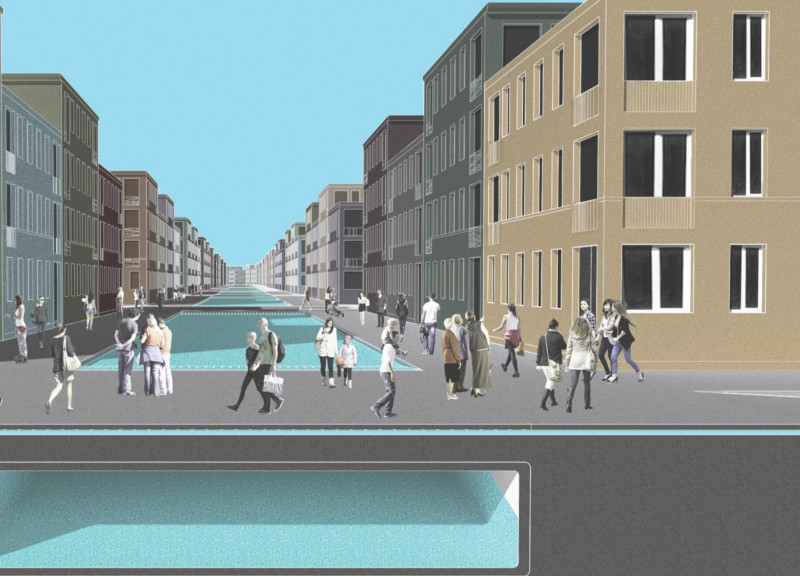5 key facts about this project
The Modern Navigli project is an architectural intervention focused on revitalizing the historic Navigli waterways in Milan, Italy. This initiative aims to reflect the dual aspects of preserving historical significance while adapting to contemporary urban needs. The project highlights the importance of integrating water features into urban infrastructure, enhancing both aesthetic and functional qualities of the public realm.
At its core, the Modern Navigli project serves multiple functions, including cultural engagement, ecological balance, and community connectivity. By transforming the canals into vibrant public spaces, this project fosters social interaction and provides an avenue for localized events, especially during the summer months. The design also incorporates sustainable water management solutions, addressing environmental challenges such as stormwater runoff and urban heat.
Innovative Approaches to Design
The project distinguishes itself through its innovative approach in merging historical context with modern design elements. The pathway systems utilize concrete and stone paving, which provide robustness while ensuring durability against urban wear. The use of permeable paving techniques is particularly noteworthy, allowing for effective stormwater management without compromising the visual integrity of the landscape.
Furthermore, integration with native flora not only enhances biodiversity but also enriches the visual experience for residents and visitors. This commitment to an ecologically sensitive approach reflects in the careful selection of materials employed throughout the project. Transparent glass elements are used at strategic locations to foster a connection between the waterway and pedestrian pathways, promoting a seamless interaction with the surrounding environment.
Community-Centric Design Elements
The architectural plans prioritize accessibility, incorporating dedicated lanes for bicycles and pedestrians along the canals. These features create a continuous flow of movement that increases connectivity within urban spaces, while also encouraging sustainable transportation options. Key sites, such as the Cassin di Pisoni and the Università degli Studi, have been transformed to enhance community gatherings and promote cultural appreciation through the integration of green spaces.
The Modern Navigli project ultimately serves as a vital urban corridor that balances historical preservation with the necessities of modern city living. The thoughtful design choices underscore this balance, setting a precedent for similar urban revitalization efforts in other cities.
For a comprehensive understanding of the project, including detailed architectural designs, sections, and plans, readers are encouraged to explore the full presentation of the Modern Navigli. These resources will provide further insight into the unique architectural ideas and functional elements that characterize this significant project.






















































